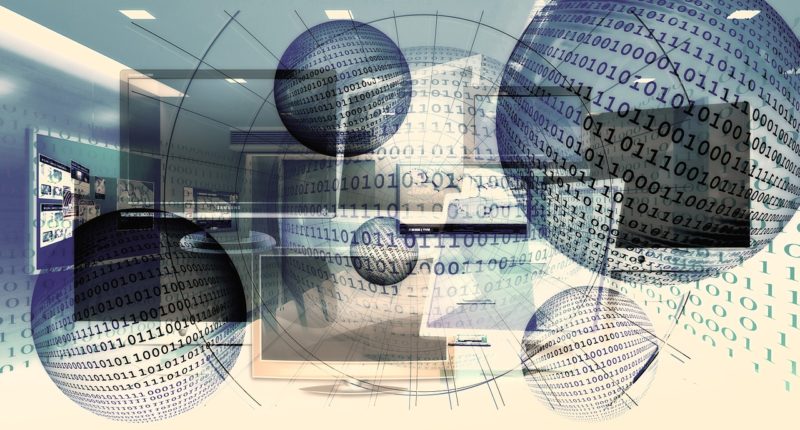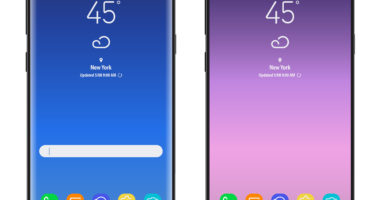The COVID-19 pandemic has caused severe disruption in most of the economic activities due to which businesses across the world are suffering. There has been a tremendous increase in scams and frauds related to COVID-19 in the country. Hackers are taking advantage of the situation to lure potential consumers into downloading infected files via suspicious links. Criminals are trying to misuse high volume searches and interest amongst the public to know any information related to coronavirus on the internet.
The pandemic has compelled consumers to use digital payments. As social distancing is becoming the new norm in the era of COVID-19, consumers are being forced to opt for digital and contactless modes of payments. However, with the increased usage of online payments, comes the fear of frauds related to such payments. Thanks to the pandemic! Almost everyone nowadays is preferring to use a digital medium to make their payments.
The question that’s left for most of us now is if these digital payment options are safe to use considering how active hackers and fraudsters have become in times of COVID-19.
In this article, let’s talk about the various COVID-19 related scams and frauds we have seen so far and also the potential scams we could altogether avoid in the days to come.
Why are fraudsters seeing the pandemic as an opportunity?
- As the demand for certain goods and services increases, often, consumers tend to be less mindful in its procurement.
- Vulnerable consumers are more susceptible to fall prey to payment frauds since they have been compelled to use new payment options considering the COVID-19 crisis. Sometimes, they are also being asked to rely on third-party websites for transactions.
- COVID-19 has created unthinkable consequences across the country. The entire pandemic situation has resulted in higher anxiety and lower confidence levels, thereby, consumers are more susceptible to frauds and scams.
- The disruption caused to the supply chain distribution has given another opportunity for fraudsters to cheat unsuspecting consumers.
COVID-19-related scams and frauds witnessed so far
Mobile app scams
Recently, an app which claimed to check an individual’s oxygen, BP, and sugar levels via his or her phone compelled users to use their thumb or fingers for verification. However, later it was identified as a fake app which was used to copy the thumb and finger impressions of users since the impressions were directly linked to the user’s Aadhaar and bank account. Many innocent people lost money from their bank accounts.
Fraudsters are creating and manipulating several other mobile phone apps. These apps look like they are meant for tracking the spread of COVID-19. Nevertheless, in reality, once these apps are installed, a user’s device will get affected with malware which can be used for obtaining the user’s personal information, bank account/card details, sensitive data, etc.
COVID-19 fraudulent websites/email IDs
There has been a substantial increase in new fraud risk typologies, specifically about the registration of significant numbers of ‘COVID-19’ internet domains. These websites pose like genuine websites of an organisation; however, they are fake and carry the essential malware to infect electronic devices such as computers, phones, laptops, iPads, etc.
Since most of the companies have opted for the Work From Home (WFH) option, fraudsters are using this as an opportunity to target various companies and their employees. With the help of emails disguised as updates related to COVID-19, fraudsters are tricking employees into submitting their credentials by requesting them to log in to a company’s ”COVID-19” portal, which is fake. Once an employee enters his/her credentials, a fraudster can have uninterrupted access to the business accounts and network of an organisation an employee is working at.
Also Read: Are COVID-19 Contact Tracing Apps as Effective as They Claim?
COVID-19 treatment/testing scams/fake drugs
People are not able to differentiate between genuine and fake drugs. Since there is a significant gap between the demand and supply of essential drugs, people are falling prey to counterfeit drugs which are being stuffed on the online marketplace and even in the pharmacies. Fraudsters are also using online and social media forums to promote fake testing kits, products, masks, sanitisers, vaccines, and unproven treatment methods.
| Recently, a fake SBI bank branch was identified in Panruti in Cuddalore district by the Tamil Nadu police officials. As per the police investigation, the son of a former SBI employee purchased lockers, computers, challans, and forged the required documents to set up the SBI bank branch using his contacts. A website also was created in the name of the Panruti Bazaar branch.
Nevertheless, the fake branch was identified when an SBI customer enquired regarding the newly-opened branch with the manager of an existing branch in the town. |
How to protect yourself from payment frauds and scams?
- Be alert about fraudulent emails you may receive claiming to be sent by experts who have immense knowledge related to the virus.
- Never click on links or access attachments you have received via unknown/unverified senders. Always ensure to check email addresses thoroughly for irregularities such as miscellaneous symbols or spelling mistakes. Fraudsters mostly use addresses which have only a slight difference when compared to the addresses of entities they are impersonating.
- Stay alert about the various investment scams/trends that happen around you concerning COVID-19.
- Make sure you purchase drugs only from authorised chemists or familiar sellers. Ensure always to check the product details such as labels, ingredients, packaging, date of manufacture/expiry, and the manufacturing location.
- Stay alert when you are using an online website to do your shopping. Most of the fake online shopping websites offer customers with non-traditional payment options such as money orders, gift cards, cryptocurrency, or funds transfer.
- Do not encourage any payment shortcuts recommended by a sales representative. Always ensure to log in to the official website to make your payment.
- Ensure to have checked the background thoroughly before initiating a donation to any charity or a crowd-funding campaign.
- Refrain from sharing your home-desk/workstation photos on any of the social media platforms as you might inadvertently share your confidential information. Be mindful of the information or pictures you share on your social media accounts.
- Ensure to use two-factor authentication on the critical IT assets you use.
- Limit the usage of applications which provide remote access and compel password resets frequently.
- Make sure the anti-ransomware, anti-virus, and anti-malware software you have installed on your devices are up and running. If they are coming close to the expiry date, ensure to have the software renewed accordingly. Also, ensure your operating system patches are updated on a timely basis.
- Do not instal freeware on your IT systems since they can have hidden malware/trojans.
- Connect to the internet via secure broadband and WiFi connections. It is always recommended to connect to the internet via a virtual private network (VPN).
- Do not neglect any data breach incident since it might pose a more significant problem later.
- In case you become a victim of a cyberattack, make sure you investigate the root cause and secure yourself against such attacks in the future.
Conclusion
In this article, we understood how fraudsters are using the entire pandemic situation for their benefit and are cheating innocent people. We should aim at making digitalisation safe for both consumers and merchants. Gradually, we should aim at adopting cutting-edge technologies such as machine learning, artificial intelligence, and biometric authentication to combat such frauds. COVID-19 could be a blessing in disguise for enhancing the overall scope of the digital payment space.
In the days to come, we need to focus on developing top-notch security systems which can eliminate all kinds of frauds/scams thus ensuring a safer digital payment space in the post-COVID-19 era.
For any clarifications/feedback on the topic, please contact the writer at bhavana.pn@cleartax.in
Bhavana is a Senior Content Writer handling the GST vertical. She is committed, professional, and has a flair for writing. When away from work, she enjoys watching movies and playing with her son. One thing she can’t resist is SHOPPING! Her favourite quote is: “Luck is what happens when preparation meets opportunity”.





